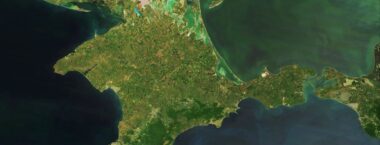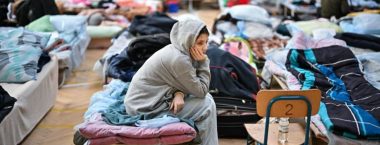
Statement of Human Rights Organizations Regarding Conviction of Crimean Activist Bohdan Ziza
On June 6, 2023, the Southern Area Military Court of Rostov-na-Donu sentenced Mr.Bohdan Ziza, a...
08 June 2023
23.02.2022
On February 21, 2022, Russia’s President Vladimir Putin signed decrees on recognizing the “Donetsk People’s Republic” and “Luhansk People’s Republic”, announcing Russia’s plans to establish diplomatic relations with them and to ensure peace in these territories through Russian armed forces until diplomatic relations have been established.
With this step, Russia has given a definitive answer as to its role in the military aggression against Ukraine it began in 2014, since it has already admitted de jure its “political” and military jurisdiction over certain areas of Ukraine’s Donetsk and Luhansk oblasts – and thus, has admitted to being a party to an international armed conflict.
Russia has ended the hybrid war stage, when Ukraine had to prove in international tribunals Russia’s overall effective control over the aforementioned territories by virtue of providing funds and military support as well as through Russia-controlled administrations.
Russia’s decision must be followed by an appropriate change in terminology, both in Ukraine and at the international level, and by a clear declaration of Russia’s status as the occupying power under international humanitarian law.
Parts of Donetsk and Luhansk oblasts are now temporarily occupied territories. As the occupying power, Russia must ensure observance of the rights and freedoms of residents of the temporarily occupied territory of Donetsk and Luhansk oblasts.
Furthermore, Russia can no longer be considered a third party in the international diplomatic format (Trilateral Contact Group for the Peaceful Settlement of the Situation in Eastern Ukraine).
Russia is already enacting in the temporarily occupied territory of Donetsk and Luhansk oblasts the same scenario of widespread and systemic human rights violations that it used in the temporarily occupied Crimea: mass conscription of the local population into the occupants’ “armed forces” and use of political prosecution against anyone who dares to speak out against the occupation. The next steps will likely involve forced relocation of people (convicts, orphans, and other persons under the control of the occupying administrations) to Russia, alteration of local demographics, and other crimes that Russia commits in the territories it occupies as part of the usual scenario.
These easily predicted acts by Russia must be given an appropriate qualification by all civilized states.
An effective package of sanctions must be prepared at the level of international organizations (UN, Council of Europe, OSCE), to be used against Russia if the above scenario comes to pass.
The President and the Parliament of Ukraine must work out a clear strategy for the protection of Ukrainian citizens in the temporarily occupied territory in the event of escalating violence and mass violations of human rights and freedoms.
As for the Ukrainian government in general, it must finally, in this ninth year of Russia’s military aggression against Ukraine, determine state policy on combating the aggression, overcoming its effects, and protecting the rights of the past and future victims of the Russo-Ukrainian war.
Y. Zakharov
О. Pavlichenko
If you find an error on our site, please select the incorrect text and press ctrl-enter.

On June 6, 2023, the Southern Area Military Court of Rostov-na-Donu sentenced Mr.Bohdan Ziza, a...
08 June 2023

On April 4, 2023, the Cabinet of Ministers of Ukraine (CMU) approved Order No. 288-r,...
03 May 2023

Since the beginning of the full-scale Russian invasion of Ukraine, about 150,000 civilians who fled...
17 October 2022
Within the framework of Crimea Academic Forum – 2022, Taras Shevchenko National University of Kyiv...
15 September 2022